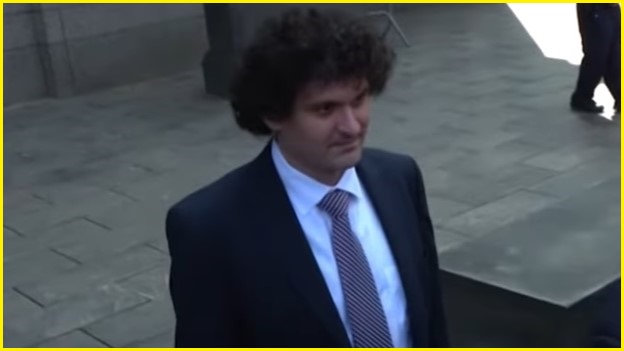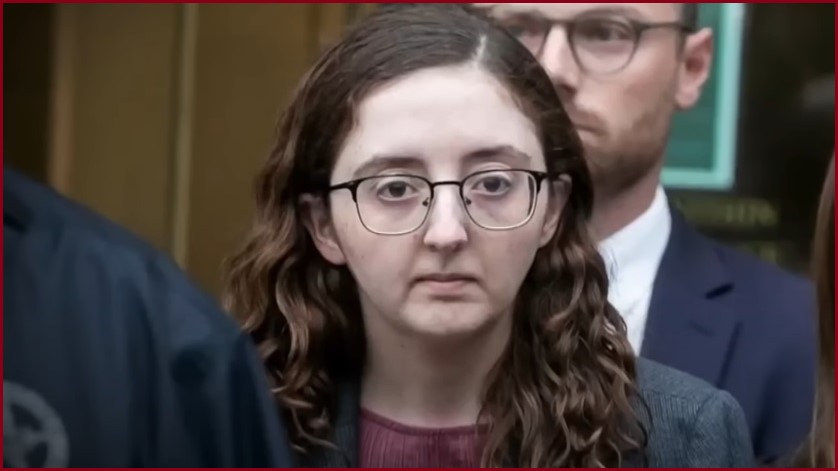Caroline Ellison, the ex-girlfriend of crypto fraudster Sam Bankman-Fried who turned star witness against him, has been sentenced to two years in prison over her role in the $16 billion FTX cryptocurrency scam.
Ellison was the CEO of Alameda Research, the trading branch of Bankman-Fried’s cryptocurrency exchange FTX.
Alameda was found to have taken funds invested by users of FTX and invested this money in stocks, as well as using it for lavish personal expenses.
The 30-year-old pleaded guilty to seven charges related to the crypto fraud in late 2022, including wire fraud and money laundering, and agreed to a plea deal which saw her appear as the key witness against Bankman-Fried in his own trial over the FTX scandal.
The two-year sentence is despite Ellison’s lawyers and the Federal Probation Department recommending three years of supervised release with no prison time.
In sentencing Ellison, Judge Lewis Kaplan acknowledged that she had greatly assisted authorities but said he could not agree to a “literal get-out-of-jail-free card”.
Despite facing a potential maximum sentence of 110 years, Ellison was sentenced to 24 months in prison.
It’s a substantially lower sentence than the one imposed on Bankman-Fried earlier this year, with the former FTX CEO currently serving a 25-year prison sentence.

Sam Bankman-Fried was sentenced to 25 years' imprisonment. Photo: YouTube
‘Exemplary’ cooperation
FTX was a cryptocurrency exchange once worth as much as $46 billion ($US32 billion).
Following the crypto crash of 2022 and attempts by users to withdraw their money from the exchange, it was revealed that FTX and Alameda had used billions of dollars in its customer funds for its own trades and the lavish personal spending of executives.
Just a month after FTX filed for bankruptcy, Ellison agreed to a plea deal with authorities in December 2022.
This saw her testify against Bankman-Fried and provide the prosecutors with seven fake spreadsheets made by FTX, which was “one of the huge pieces of evidence” in the case.
Ellison pleaded guilty to the fraud charges but said she had been directed and controlled by Bankman-Fried.
“He was the person I reported to,” she said during the trial.
“He owned the company and he set my compensation and had the ability to fire me.”
Ellison’s cooperation throughout this trial was labelled by the prosecution as “not only substantial, but exemplary”.
“The government cannot think of another cooperating witness in recent history who has received a greater level of attention or harassment,” the prosecutor said.
The judge presiding over the sentencing hearing also acknowledged her assistance.
“I’ve seen a lot of cooperators in 30 years,” Kaplan said.
“I’ve never seen one quite like Ms Ellison.”
The lawyer representing Ellison said she had “recovered her moral compass” and regretted not leaving FTX and Alameda earlier.
But the judge found that she was still culpable for the fraud committed by FTX and Alameda, and that jail time was necessary.
She has also been ordered to forfeit nearly $16 billion in assets ($US11 billion).
Ellison spoke briefly at the sentencing hearing and apologised for her role in the crypto fraud.
Partner turned testifier
Ellison was in an on-again, off-again relationship with Bankman-Fried while the pair were running Alameda and FTX respectively.
In the lead up to his trial, Bankman-Fried leaked Ellison’s private notes to the press, resulting in his bail being revoked.
The leaked writing, in the form of Google Doc pages, included Ellison saying she did not feel qualified or ready to run Alameda, and details of her romantic relationship with Bankman-Fried.

A judge ruled Caroline Ellison (pictured) was culpable of fraud and would have to serve prison time. Photo: X.com
After a much-publicised month-long trial, the jury took just four hours to find Bankman-Fried guilty of seven charges relating to fraud, conspiracy and money laundering.
US Attorney Damian Williams said the founder had perpetrated a “multi-billion-dollar scheme” in an effort to crown himself as the “king of crypto”.
Bankman-Fried’s lawyers had attempted to argue it was incompetence rather than deliberate malice that led to billions of dollars in customer funds disappearing from FTX’s balance sheet, instead being used by Alameda to make investments and by Bankman-Fried to fund his lavish lifestyle.
The prosecutor overseeing the case labelled the FTX scam as “old-fashioned embezzlement” under the guise of new technologies.
Bankman-Fried is now appealing his prison sentence and has requested a new trial with a different judge.
FTX executive Ryan Salame was also recently sentenced for his role in the fraud, with a seven-and-a-half-year sentence imposed, greater than what the prosecution had pushed for.
Salame also reached a plea deal but did not act as a cooperating witness during the Bankman-Fried trial.
Two other high-level FTX executives are set to be sentenced in the coming weeks.










